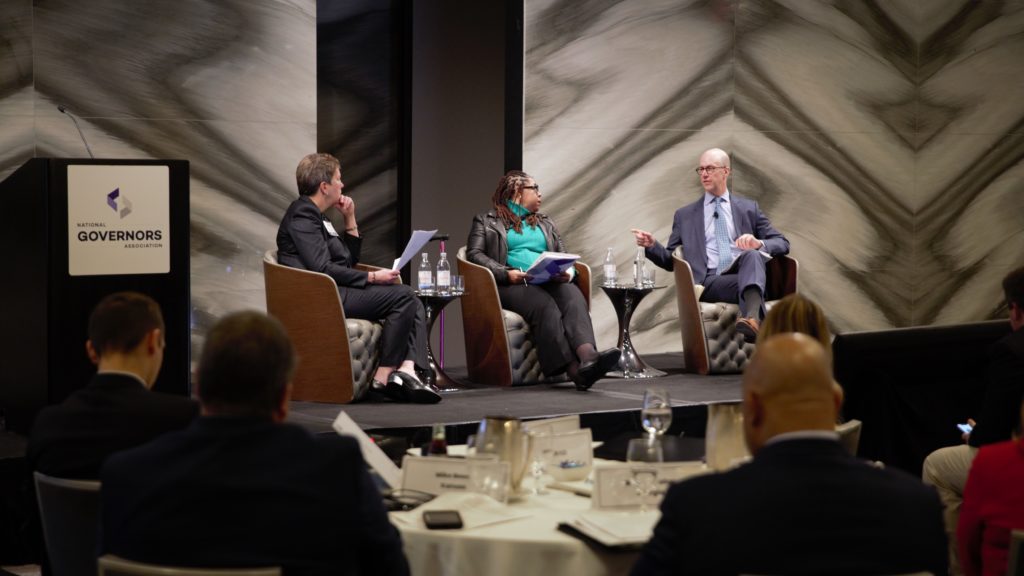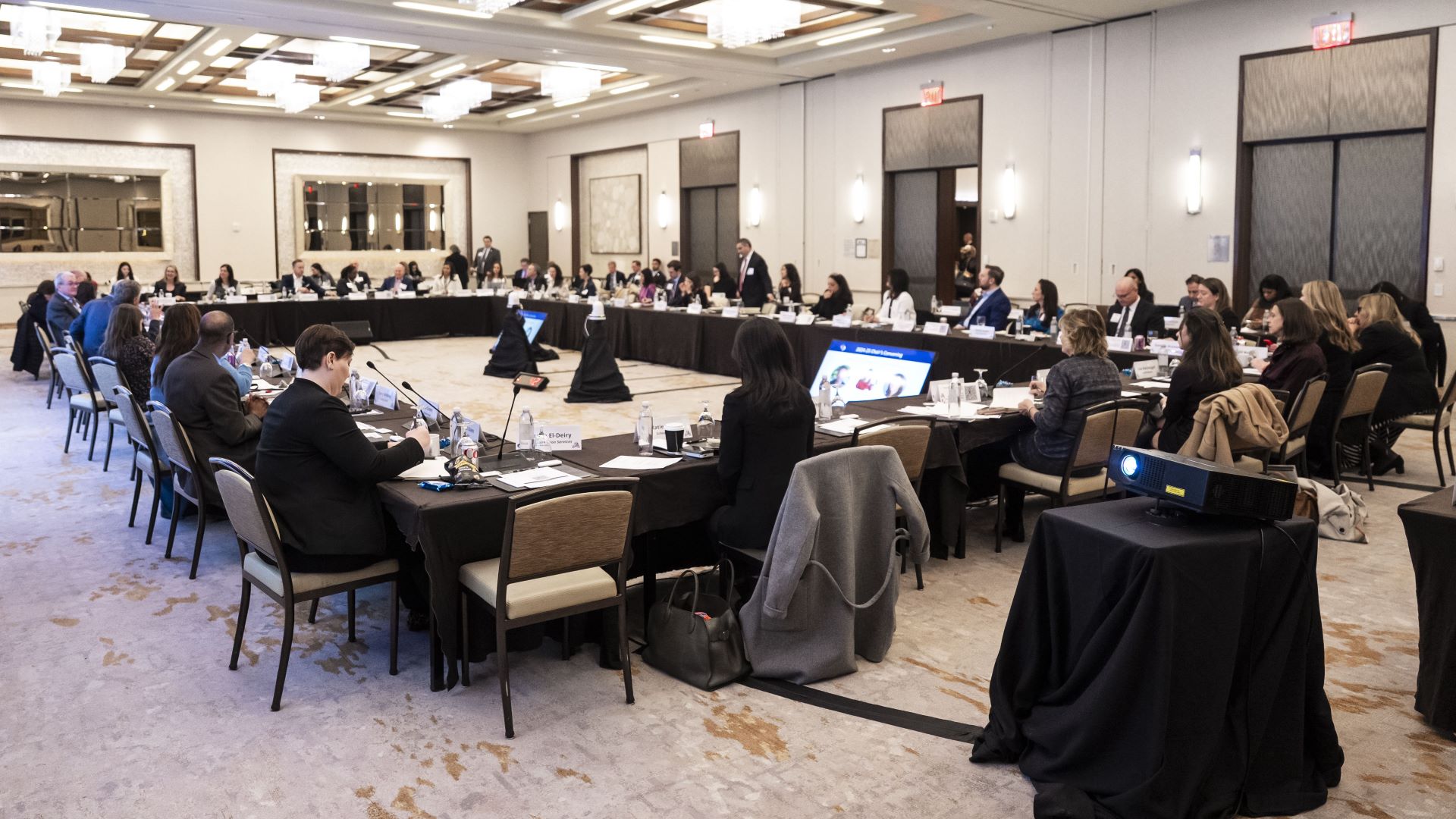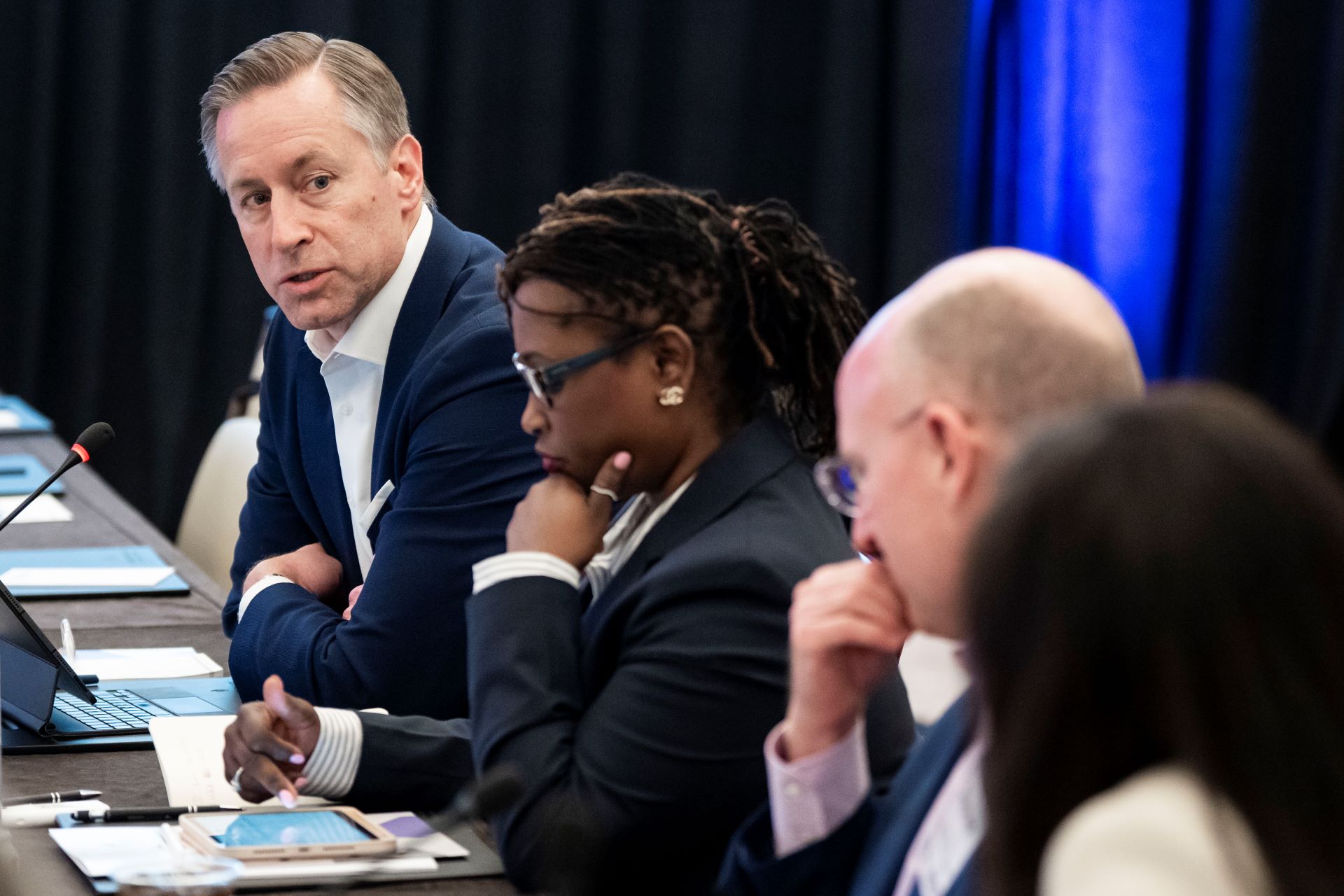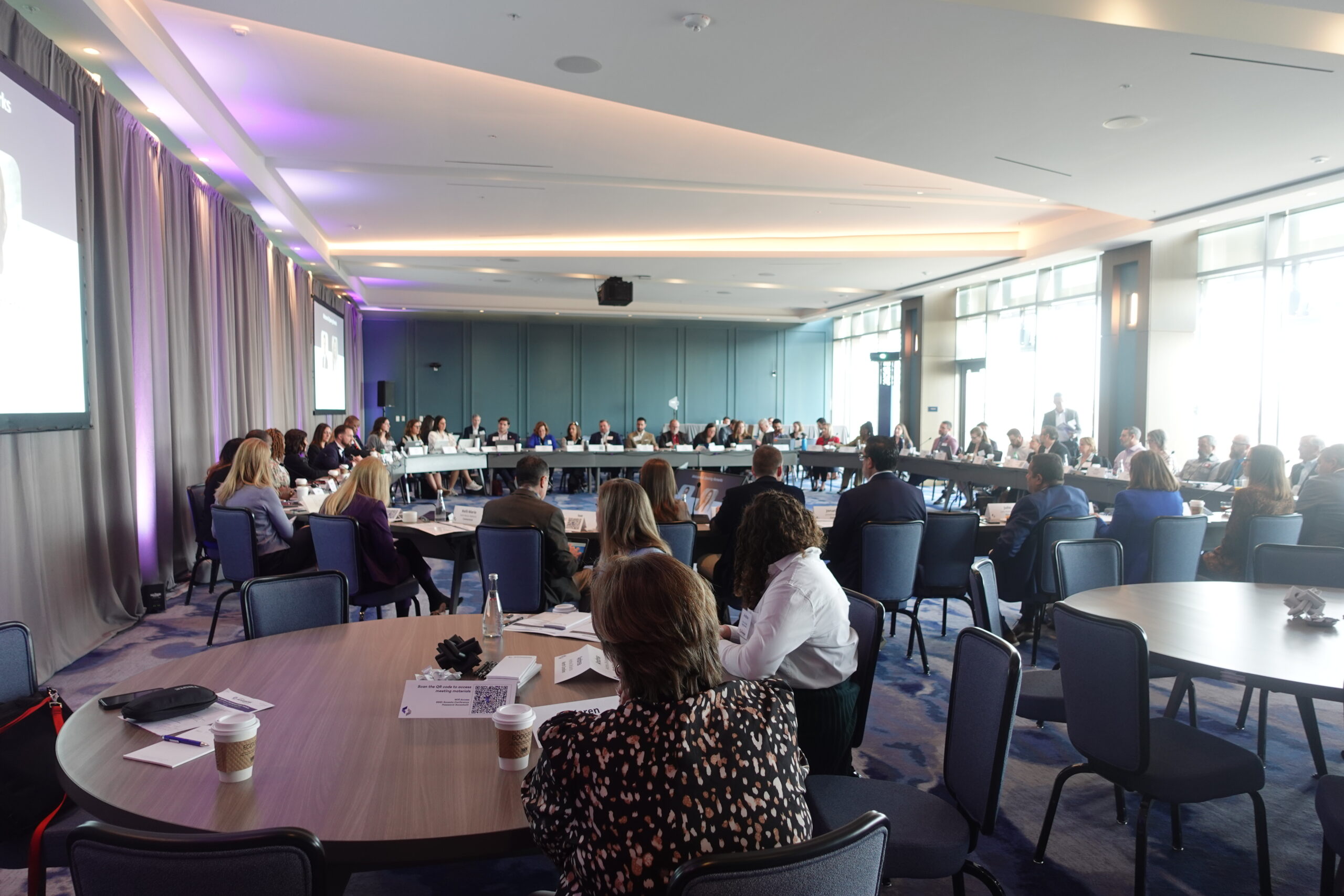At the 2022 NGA Winter Workforce Symposium, State workforce development leaders engaged with business leaders and subject matter experts on the benefits of advancing equitable employment for underserved and marginalized workers.
by Sophia Yager
Governors and state leaders have committed to increasing diversity, equity, and inclusion (DEI) as they work to expand economic opportunity and increase regional and national economic competitiveness. During the National Governors Association’s Winter 2022 Workforce Symposium, business leaders and DEI experts were invited to discuss the imperative of fostering diverse talent pipelines. This included a focus on the role state workforce development systems can play in developing a “business case” emphasizing the positive return on investment from prioritizing historically underserved and underrepresented populations as businesses work to create more equitable employment opportunities.

Moderated by Karen Kirchler, Deputy Commissioner of Workforce Development for the Technical College System of Georgia, the conversation brought together panelists Bridgette Gray, Chief Customer Officer at Opportunity@Work, and Dane Linn, Senior Vice President of Corporate Initiatives at Business Roundtable, to discuss their perspectives.
Bridgette explained that the focus on DEI as a workforce priority was important long before the May 2020 killing of George Floyd increased national attention on systemic racism. She emphasized that amid the current workforce shortage, employers must reconsider their traditional talent pipelines so they can tap into the diverse pool of underserved workers who have skills, experience, and growth potential but often lack access to existing employment pathways. Dane added that Business Roundtable’s focus on racial justice and economic equity includes working with its member CEOs to increase their organizations’ impact by committing to measurable goals for recruitment, retention, and career pathway creation for diverse workers.
The discussion identified three key areas of opportunity for Governors and state policymakers to pursue as they advance diversity, equity, and inclusion in workforce development efforts:
- Public-private partnerships: Employers are seeking nimble, easily accessible assistance from public workforce systems in cultivating more diverse talent pipelines, especially small businesses who lack capacity for dedicated HR or DEI staff. State policymakers can build partnerships with a group of key employers to find opportunities for training, upskilling, and recruitment of underserved populations and then scale those solutions across wider sector networks.
- Skills-based hiring: State workforce systems can engage with employers to determine the skills they are looking for, then work to broaden access to these careers for workers who may have these skills but who have developed them through alternative routes like community college, apprenticeships, military service, boot camps, and on-the-job experience, rather than filtering jobseekers based on four-year degrees or other credentials that exclude these workers, many of whom are from underserved populations.
- State as a model employer: Governors and state policymakers can leverage the role of the state as an employer to model best practices in equitable hiring and fostering inclusive workplaces. For example, Maryland Governor Larry Hogan recently announced that the state is launching an initiative to formally eliminate four-year college degree requirements for thousands of state jobs to ensure consideration of a diverse candidate pool.
The bi-annual NGA Workforce Symposium is hosted by staff of NGA’s Workforce Development & Economic Policy program as part of its Workforce Development Technical Assistance Program. These meetings convene two affiliates of the NGA Center for Best Practices: the National Association of State Workforce Board Chairs and the National Association of State Liaisons for Workforce Development Partnerships. The next Symposium will be hosted in Oklahoma City, Oklahoma, in August 2022. For more information about the Workforce Development Technical Assistance Program or the affiliate associations, please contact Rachael Stephens at rstephens@nga.org.












